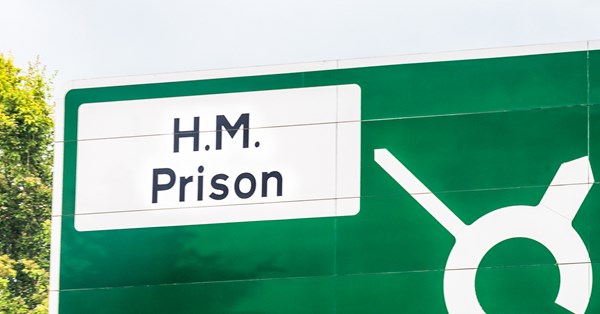THE expression of academic theology in human experience is well illuminated by combining some of the high themes of Professor Andrew Davison’s article with the subterranean realities of prison life and ministry.
There is a surfeit of suffering in and around the criminal justice system. Victims of crime are a starting point for sympathy, but other innocent families and children can also be damaged by the consequences of crime.
One of the less obvious causes of pain is the law’s delays. Every week, on the wings of HM Prison Pentonville (north London’s Dickensian, 182-year-old jail, holding more than 1000 prisoners on remand), I meet men who are waiting between 18 months and two years in custody just to have their cases heard. Statistics show that, when they get their day in court, 40 per cent of them will be found not guilty, or have their cases dropped by the CPS, or be released immediately because of “time served”.
When I was a law student in the 1960s, I was taught the axiom “Justice delayed is justice denied.” The Christian challenge is how to cope with such gargantuan delays; to endure them, or even be strengthened by suffering in the prison context.
IN THE New Testament, there are 46 mentions of prison, and 12 of prisoners. One or two of the latter were real rogues (Barabbas, for example), but some were saints, such as John the Baptist, Paul, and Peter. And we should never forget that Jesus spent the night before his crucifixion in a prison cell, at the house of the High Priest.
While I have not myself quoted St Irenaeus or St Gregory of Nyssa in a prison sermon, their teaching that the sufferings of Jesus should be imitated by his faithful followers can certainly resonate with prisones. And, from time to time, I do refer to Martin Luther’s words: “Sometimes it is in our pain and our brokenness that we come closest to Christ.”
When, in 1999-2000, I served my 18-month sentence for perjury in HM Prison Belmarsh and other establishments, I came gradually to understand that the experience of incarceration was enriching my spiritual life. Perhaps that was why, after release, I headed for an institution that seemed to serve worse food and have more uncomfortable beds than a prison: an Anglican theological college — Wycliffe Hall, in Oxford.
Great Wycliffe teachers such as Alister McGrath, Michael Green, and Graham Tomlin, inspired me to serve Christ as a layman, but ordination was not on my agenda. The Hound of Heaven had other ideas. He chased me for 15 years after leaving Oxford, until I was ordained as a prison chaplain in 2019.
THE challenges of prison ministry are often overwhelming. Yet I love this field of God’s work, precisely because of the resurrection dimension. Prisons are not empty tombs — they are overcrowded, often despairing, occasionally dangerous, black holes of poor mental health and sadness. “He descended into hell,” the Apostles’ Creed says. And so do many prisoners, particularly when the early shocks of prison life first dawn on them.
So, where does our hope come from? Eastertide is a good time to search for it. Our Lord’s resurrection was unique, and yet it can spawn individual human resurrections.
At this time of year, my favourite service in the prison chapel is Maundy Thursday’s washing of the feet, when the acting out of the liturgy can produce astonishment, tears, cleansing, repentance, behavioural change, and stirrings of the soul towards new beginnings.
THERE is not enough deep Christian theology in prison life, and there are too few challenges to the secular mindset that prisons should be centres of punishment. Sometimes, yes: sometimes, they rightfully protect the public from dangerous offenders. But such fears should not hold us back from being willing also to see prisons as places of redemption.
Although the redemption of prisoners is a lonely road, I love finding the strength to walk along it with my fellow sinners. Failure and disappointment are my constant companions. But — “Hold the front page!” as we used to say in old Fleet Street — Jesus taught us, in his disturbing parable of the sheep and the goats (Matthew 25. 31-46), that we should reach out to the least of these our brothers and sisters.
Prisoners of the state who have been caught are often not much worse than prisoners of sin who have not yet been caught. Lay theology fumbles around in this area with soundbites like, “There but for the grace of God go I.” Real, practical theology will be getting somewhere when, with a genuflection to first-century Irenaeus, it starts to encourage effective rehabilitation on both sides of the prison walls in our 21st century.
The Revd Jonathan Aitken has been Chaplain of HM Prison Pentonville since 2018. He is also an Assistant Priest at St Matthew’s, Westminster, and St Peter’s, Notting Hill, in the diocese of London.

















